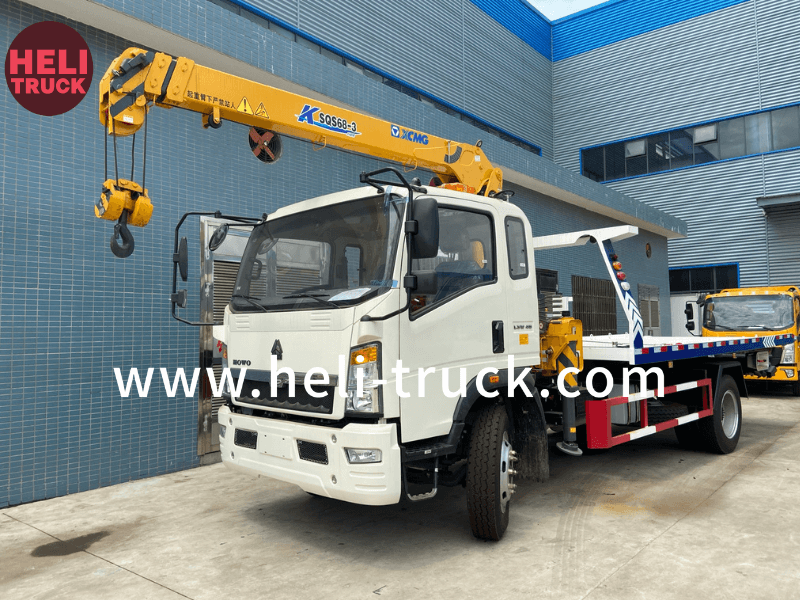Maximizing Efficiency and Cleanliness at Public Events with Garbage Compactor Trucks

Introduction:
Public events are a common occurrence around the world, ranging from music festivals and sports events to community fairs and parades. These events bring together large crowds of people, creating a festive atmosphere but also generating a significant amount of waste. Proper waste management at public events is crucial to maintain cleanliness, prevent environmental pollution, and ensure the safety and well-being of attendees.
Garbage compactor trucks play a vital role in managing waste at public events by efficiently collecting and compacting trash, reducing the volume of waste generated, and facilitating its transportation to disposal facilities. In this article, we will explore the importance of garbage compactor trucks at public events, their benefits, and how event organizers can maximize efficiency and cleanliness by utilizing these specialized vehicles.
Work truck safety features of Garbage Compactor Trucks at Public Events:
Public events, whether small community gatherings or large-scale music festivals, generate a significant amount of waste in the form of food packaging, beverage containers, paper products, and other disposable items. Without proper waste management measures in place, this waste can quickly accumulate, leading to unsightly litter, foul odors, and potential health hazards.
Garbage compactor trucks are essential for maintaining cleanliness and order at public events by providing a systematic and efficient means of collecting and disposing of waste. These specialized vehicles are equipped with compactors that compress trash, allowing them to carry larger volumes of waste and reduce the frequency of trips to disposal sites. This not only saves time and resources but also minimizes the environmental impact of transporting waste.
Benefits of Garbage Compactor Trucks at Public Events:
1. Efficient Waste Collection: Garbage compactor trucks can efficiently collect and compact large volumes of waste, reducing the need for multiple collection trips and optimizing resource utilization.
2. Reduced Environmental Impact: By compacting waste and minimizing the number of trips required for disposal, garbage compactor trucks help reduce fuel consumption and greenhouse gas emissions, contributing to environmental sustainability.
3. Improved Cleanliness and Hygiene: Proper waste management with garbage compactor trucks helps maintain cleanliness and hygiene at public events, reducing the risk of littering, pest infestations, and the spread of diseases.
4. Enhanced Public Safety: Cluttered and unsanitary conditions resulting from inadequate waste management can pose safety hazards to event attendees. Garbage compactor trucks help mitigate these risks by keeping the event area clean and organized.
5. Cost-Effectiveness: While the initial investment in garbage compactor trucks may be significant, the long-term cost savings from efficient waste management and reduced operational expenses can make them a cost-effective solution for event organizers.
Maximizing Efficiency and Cleanliness with Garbage Compactor Trucks:
To fully leverage the benefits of garbage compactor trucks at public events, event organizers can adopt the following best practices:
1. Pre-Event Planning:
Before the event, assess the waste generation potential based on the expected attendance, duration, and type of activities. This will help determine the number and size of garbage compactor trucks needed for efficient waste management.
2. Strategic Placement:
Position garbage compactor trucks strategically throughout the event venue to ensure easy access for waste collection and minimize the distance traveled to transport waste. Consider high-traffic areas, food and beverage stalls, and restroom facilities for optimal placement.

3. Regular Monitoring and Maintenance:
Assign dedicated staff to monitor the fill levels of garbage compactor trucks and schedule timely pickups to prevent overflow and maintain cleanliness. Conduct regular maintenance checks to ensure the proper functioning of compactors and other essential components.
4. Recycling and Waste Segregation:
Implement a waste segregation system at the event venue to separate recyclable materials such as plastic, paper, and glass from general waste. Use separate compartments or bins in garbage compactor trucks to facilitate recycling and reduce the amount of waste sent to landfills.
5. Staff Training and Coordination:
Train event staff and waste management teams on the proper use of garbage compactor trucks, including safety protocols, operating procedures, and waste segregation practices. Establish clear communication channels for coordination and timely response to waste management needs.
6. Public Awareness and Participation:
Engage event attendees through signage, announcements, and educational materials to promote responsible waste disposal practices such as recycling, composting, and minimizing single-use items. Encourage public participation in keeping the event area clean and supporting sustainable waste management initiatives.
Conclusion:
Garbage compactor trucks play a crucial role in maintaining efficiency and cleanliness at public events by providing a comprehensive waste management solution that optimizes resource utilization, reduces environmental impact, and enhances public safety. Event organizers can maximize the benefits of garbage compactor trucks by implementing pre-event planning, strategic placement, regular monitoring and maintenance, recycling initiatives, staff training, and public awareness campaigns.
By prioritizing effective waste management practices and leveraging the capabilities of garbage compactor trucks, public events can create a clean, safe, and sustainable environment for attendees to enjoy and contribute to the overall success and positive impact of the event.
